| ||||||||||||||||||||||
All 3 [1] Florida seats to the United States House of Representatives | ||||||||||||||||||||||
|---|---|---|---|---|---|---|---|---|---|---|---|---|---|---|---|---|---|---|---|---|---|---|
| ||||||||||||||||||||||
| Elections in Florida | ||||||||||||||
|---|---|---|---|---|---|---|---|---|---|---|---|---|---|---|
 | ||||||||||||||
| ||||||||||||||
| ||||||||||||||
| ||||||||||||||
Elections to the United States House of Representatives in Florida were held for three seats in the 58th Congress on November 4, 1902.
| ||||||||||||||||||||||
All 3 [1] Florida seats to the United States House of Representatives | ||||||||||||||||||||||
|---|---|---|---|---|---|---|---|---|---|---|---|---|---|---|---|---|---|---|---|---|---|---|
| ||||||||||||||||||||||
| Elections in Florida | ||||||||||||||
|---|---|---|---|---|---|---|---|---|---|---|---|---|---|---|
 | ||||||||||||||
| ||||||||||||||
| ||||||||||||||
| ||||||||||||||
Elections to the United States House of Representatives in Florida were held for three seats in the 58th Congress on November 4, 1902.
Since 1872, Florida had been apportioned 2 seats in the House of Representatives. After the 1900 census, Florida was apportioned a third Representative. Going into the 1902 elections, Florida was represented by two Democrats, one who'd been elected in 1894, and the second in 1896. Both incumbents ran for re-election, while the new 3rd district was an open seat.
All three seats were uncontested in the general election
| District | Democratic | ||
|---|---|---|---|
| 1st [2] | Stephen M. Sparkman (I) | 5,987 | 100.0% |
| 2nd [3] | Robert Wyche Davis (I) | 6,488 | 100.0% |
| 3rd [4] | William B. Lamar | 4,249 | 100.0% |

The Second United States Congress, consisting of the United States Senate and the United States House of Representatives, met at Congress Hall in Philadelphia, Pennsylvania, from March 4, 1791, to March 4, 1793, during the third and fourth years of George Washington's presidency. The apportionment of seats in the House of Representatives was based on the provisions of Article I, Section 2, Clause 3 of the United States Constitution. Additional House seats were assigned to the two new states of Vermont and Kentucky. Both chambers had a Pro-Administration majority.
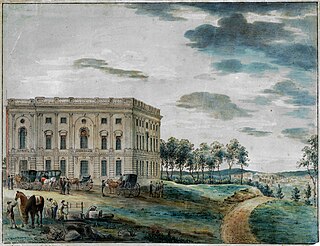
The Eleventh United States Congress was a meeting of the legislative branch of the United States federal government, consisting of the United States Senate and the United States House of Representatives. It met in Washington, D.C. from March 4, 1809 to March 4, 1811, during the first two years of James Madison's presidency. The apportionment of seats in the House of Representatives was based on the Second Census of the United States in 1800. Both chambers had a Democratic-Republican majority.
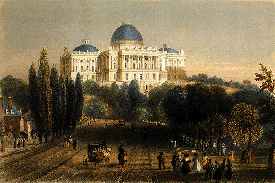
The Sixteenth United States Congress was a meeting of the legislative branch of the United States federal government, consisting of the United States Senate and the United States House of Representatives. It met in Washington, D.C. from March 4, 1819, to March 4, 1821, during the third and fourth years of James Monroe's presidency. The apportionment of seats in the House of Representatives was based on the Third Census of the United States in 1810. Both chambers had a Democratic-Republican majority.

The Seventeenth United States Congress was a meeting of the legislative branch of the United States federal government, consisting of the United States Senate and the United States House of Representatives. While its term was officially March 4, 1821, to March 4, 1823, during the fifth and sixth years of James Monroe's presidency, its first session began on December 3, 1821, ending on May 8, 1822, and its second session began on December 2, 1822, to March 3, 1823. The apportionment of seats in the House of Representatives was based on the third Census of the United States in 1810. Both chambers had a Democratic-Republican majority.

The Twenty-eighth United States Congress was a meeting of the legislative branch of the United States federal government, consisting of the United States Senate and the United States House of Representatives. It met in Washington, D.C. from March 4, 1843, to March 4, 1845, during the third and fourth years of John Tyler's presidency. The apportionment of seats in this House of Representatives was based on the Sixth Census of the United States in 1840. The Senate had a Whig majority, and the House had a Democratic majority.
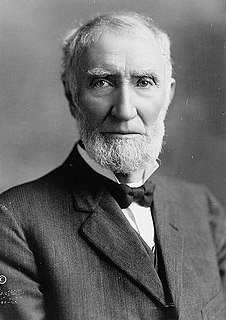
Elections to the United States House of Representatives held in 1902 occurred in the middle of President Theodore Roosevelt's first term, about a year after the assassination of President William McKinley in September 1901.
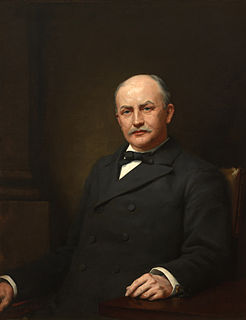
Elections to the United States House of Representatives were held in 1892 for members of the 53rd Congress, taking place at the same time as the election of Grover Cleveland as President for the second, non-continuous, time, defeating incumbent Benjamin Harrison.

Elections to the United States House of Representatives were held in 1872 and 1873 for representatives to the 43rd Congress, coinciding with the re-election of President Ulysses S. Grant.
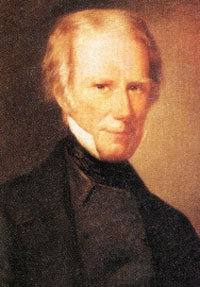
Elections to the United States House of Representatives for the 18th Congress were held at different dates in each state between July 1, 1822 and August 14, 1823 during James Monroe's second term in office. This was the first election based on the results of the 1820 Census, which added a total of 26 seats to the House. Four states lost one seat each, while nine states gained anywhere between one and eight seats.

Elections to the United States House of Representatives for the 13th Congress were held at different dates in the various states between August 3, 1812 and April 30, 1813 as James Madison was re-elected to a second term as President. The Congress convened on May 24, 1813.
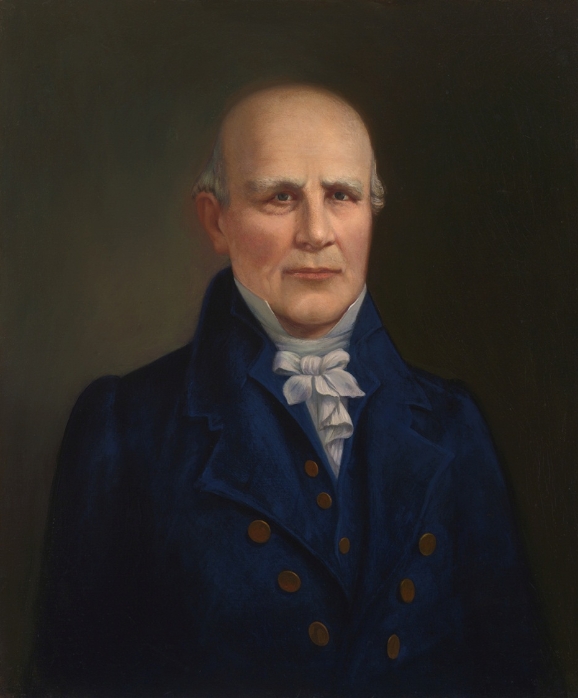
Elections to the United States House of Representatives for the 8th Congress were held at various dates in each state, from April 26, 1802 to December 14, 1803 during Thomas Jefferson's first term in office. It was common in the early years of the United Congress for some states to elect representatives to a Congress after it had already convened. In the case of the 8th Congress, the representatives from New Jersey were only elected after its first meeting on October 17, 1803.

Elections to the United States House of Representatives for the 3rd Congress were held in 1792 and 1793, coinciding with the re-election of George Washington as President. While Washington ran for president as an independent, his followers formed the nation's first organized political party, the Federalist Party, whose members and sympathizers are identified as pro-Administration on this page. In response, followers of Thomas Jefferson and James Madison created the opposition Democratic-Republican Party, who are identified as anti-Administration on this page. The Federalists promoted urbanization, industrialization, mercantilism, centralized government, and a broad interpretation of the United States Constitution. In contrast, Democratic-Republicans supported the ideal of an agrarian republic made up of self-sufficient farmers and small, localized governments with limited power.
The 1798 United States House of Representatives elections in New York were held from April 24 to 26, 1798, to elect ten U.S. Representatives to represent the State of New York in the United States House of Representatives of the 6th United States Congress.
The 1802 United States House of Representatives elections in New York were held from April 27 to 29, 1802, to elect 17 U.S. Representatives to represent the State of New York in the United States House of Representatives of the 8th United States Congress.

The 1808 United States House of Representatives elections in New York were held from April 26 to 28, 1808, to elect 17 U.S. Representatives to represent the State of New York in the United States House of Representatives of the 11th United States Congress. At the same time, a vacancy was filled in the 10th United States Congress.
The 1810 United States House of Representatives elections in New York were held from April 24 to 26, 1810, to elect 17 U.S. Representatives to represent the State of New York in the United States House of Representatives of the 12th United States Congress. At the same time, a vacancy was filled in the 11th United States Congress.
Elections to the United States House of Representatives in Florida for two seats in the 56th Congress were held November 8, 1898
Elections to the United States House of Representatives in Florida for three seats in the 59th Congress were held November 8, 1904, alongside the election for President and the election for Governor.
Elections for four seats in the United States House of Representatives in Florida for the 63rd Congress were held November 5, 1912, at the same time as the election for President and the election for Governor.
Elections for four seats in the United States House of Representatives in Florida for the 64th Congress were held November 3, 1914.